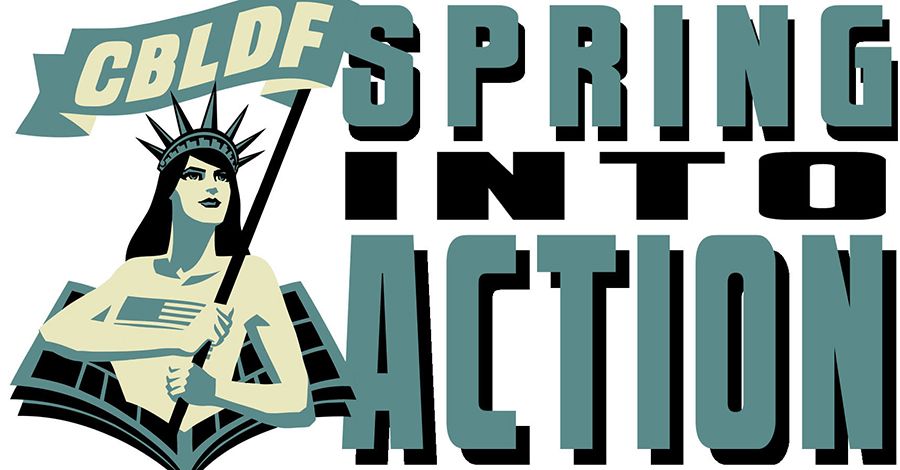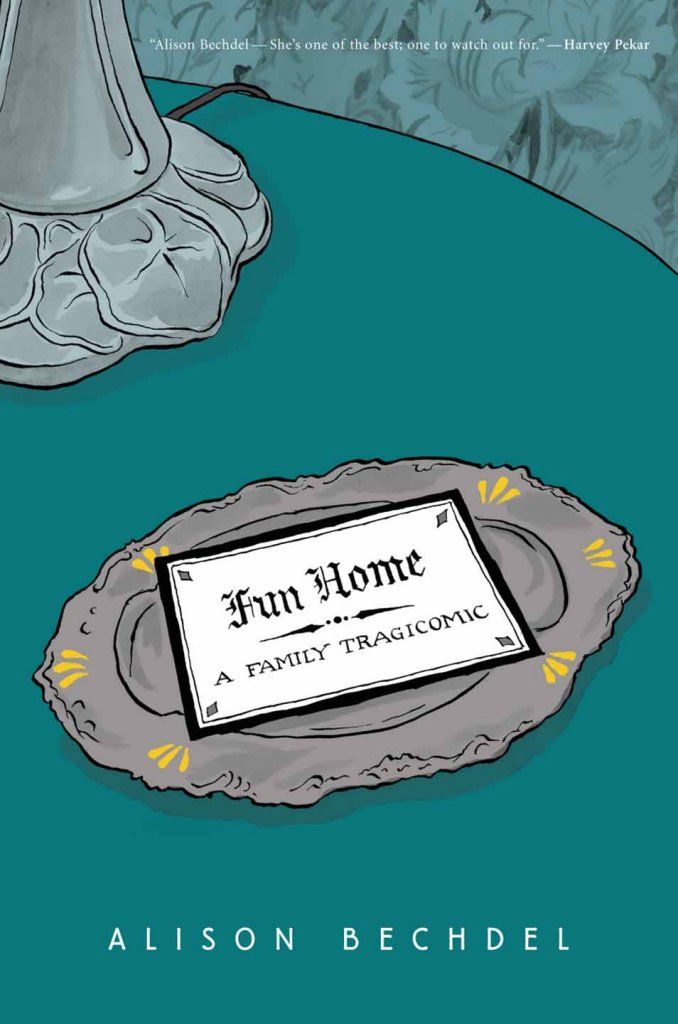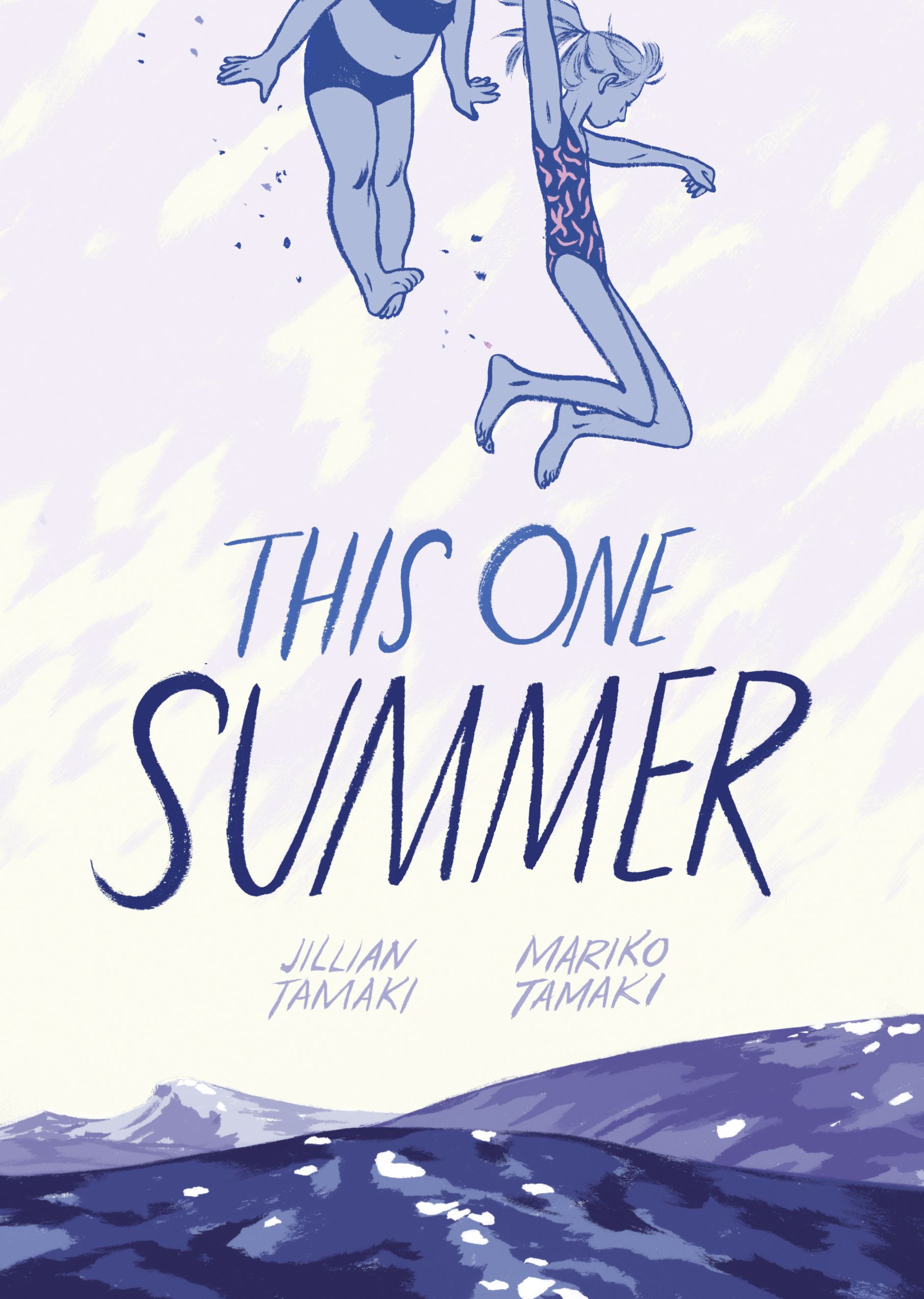Things got serious at Comic-Con International in San Diego during the Comic Book Legal Defense Fund: Banned Comics panel as CBLDF executive director Charles Brownstein and editorial director Betsy Gomez discussed the wide-ranging ways in which free speech in comics is under assault in various countries.
Early on in the panel, the topic turned to this year's terrorist attack on the Paris offices of the satirical magazine Charlie Hebdo. "If you look closely," said Brownstein, "the publication was actually defending Islam against right wing forces." Regarding the more recent shooting in Texas at the Muhammad art contest, Brownstein said that despite the event's head Pamela Gellar being an inflammatory provocateur, "the system worked -- free speech was preserved."
Gomez told the story of Atena Farghadani, who "drew a cartoon 'insulting members of Parliament through paintings.' Her cartoon lampooned debates on a bill outlawing some forms of contraception. She received a harsh sentence -- twelve years -- and even her lawyer was jailed for shaking her hand under indecency laws." She pointed to the campaign #Draw4Atena that is trying to raise awareness.
Gomez said in Ecuador, artist Bonil has been arrested for "cartoons of government oppression of the people. His cartoon of soccer player turned legislator Augustine Delgado was alleged to be discriminatory, which could result in half a million dollar fine, and the newspaper [that printed the cartoon] had to run an apology for seven straight days. He did another cartoon satirizing the Islamic State's internet activity and was threatened with a Charlie Hebdo-style attack."
Comics A.M. - A Closer Look At "Most Challenged" Comics
For the last half of the panel, the conversation turned to domestic free speech issues in the United States. Brownstein said there's a "powerful trend centered in services affecting younger readers" and there are large-scale attempts to ban books as well. "There are eighteen book censorship cases CBLDF is involved in, up from 10 or 12 in previous years," said Brownstein. "Comics are increasingly pulled into the censorship crosshairs."
Brownstein said that comic books are "challenged for language, sexual content -- anything that someone says, 'I'm not comfortable seeing or having my kids seeing this.' Fair enough; you have the right to not see that." He said that one of the comic books being targeted is "Saga," from writer Brian K. Vaughan and artist Fiona Staples. The book was attacked for its depiction of homosexual themes. "It's a story about a nuclear family, and it's accused of being anti-family," said Brownstein.
Another targeted comic book is "This One Summer" by Jillian and Mariko Tamaki. "It was the first graphic novel to make the list for the Caldecott Honor of Most Distinguished American Picture Book for Children," said Brownstein. "Now, Caldecott is a list many organizations use to base their new book orders and they just order the list automatically without looking into what they were ordering. And when this more mature book arrived, [they] blamed others and wouldn't take responsibility for what they did."
Comics A.M. - CBLDF Responds To "Palomar" Library Challenge
Raina Telgemeier's graphic novel "Drama" has also been under fire. "It was criticized as treating homosexuality as normal and is a danger to kids," said Brownstein, who also expressed some sympathy for the challenges facing parents in the information age. "It's hard being a parent right now," he admitted. "No one over 25 knows what it's like to be under 25 right now; there's a lot of change in communications from the Internet."
Its one thing when high schools are facing book-banning campaigns, but Brownstein pointed out that it even happens in adult education. "Crafton Hills College [in San Bernadino, California], there was an attempt to ban comics at the college level," he said. "A student English major took an elective course for her degree -- a twenty-year-old adult -- and she told her parents she didn't want the book included in class." The book in question was "Fun Home" by Alison Bechdel. The graphic novel, which deals with themes of homosexuality, has been turned into a Tony award-winning musical.
Brownstein noted that "Fun Home" was also targeted for censorship at "the college of Charleston, South Carolina. A state legislator debated punitive budget cuts against the college because 'Fun Home' was in a voluntary summer reading program for incoming freshmen. I say if you see something that offends you, start a conversation about it. Don't throw it away... we have these amazing freedoms here. I don't like this 'let's get rid of it,' it's toxic to free speech."



